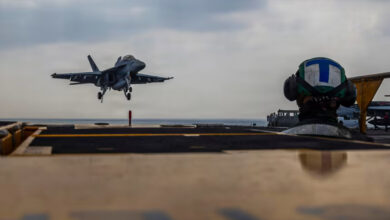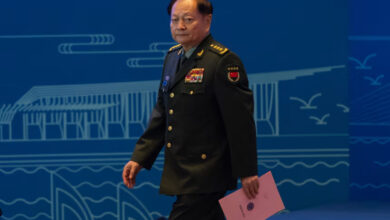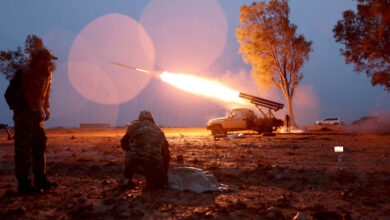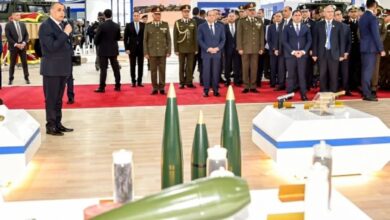Egyptian generals defended on Wednesday the army's actions in cracking down on a Christian protest, in the course of which 25 people were killed, denying charges that troops used live ammunition or that army vehicles crushed demonstrators under their wheels.
In the worst violence since Hosni Mubarak was ousted and which drew a storm of criticism of the army, activists said armored vehicles sped into a crowd on Sunday to disperse a protest in Cairo over an attack on a church building in southern Egypt.
Online videos showed mangled bodies. Activists said some people were crushed under the wheels of vehicles. Activists and a doctor said some dead had bullet wounds. The generals showed footage they said showed army vehicles avoiding demonstrators.
The violence, which drew criticism from Muslims and Christians alike, cast a shadow over the first election for parliament since Mubarak was toppled. Candidate registration began on Wednesday, while voting starts on 28 November.
Generals called for unity between Christians and Muslims.
"The armed forces would never and have never opened fire on the people," said General Mahmoud Hegazy, a member of the council that has ruled since Mubarak, himself a former military commander, was driven out by a popular uprising.
The army was praised when it took control during the uprising for restraint in handling protests. But anger at the army has mounted as the transition to civilian rule has dragged on, with many activists furious at its increasingly tough tactics.
"We are careful to ensure a secure environment for parliamentary elections," General Adel Emara said.
The generals showed footage of an armored personnel carrier swerving around protesters. They also sought to pin the blame for inciting violence on "foreign elements."
"There has not been a case of rolling over people with vehicles," Emara said. Pointing at footage he showed at the news conference, he said: "They are trying to avoid running into protesters, not rolling over them."
Protesters had complained of people they described as "thugs" attacking the demonstration before the worst violence kicked off. The generals pledged to find the "group or party" that was seeking to derail Egypt's uprising.
One journalist, Samwel al-Ashay, described his experience to the generals: "There were thugs who tried to intercept the protest… At a certain point, things got out of hand and the armored vehicles running around were actually rolling over protesters. I saw it with my eyes."
General Emara responded: "We welcome your comments and thank you for your testimony."
Amnesty International said some of the dead had bullet wounds. A doctor at a Coptic hospital had told reporters on Monday that 14 of the 17 dead brought in to his hospital had been hit by bullets. The doctor said three bodies were crushed.
"Egypt's Copts are part of the fabric of this society. All Egyptians are citizens with the same rights and obligations," Hegazy said. "This is a lesson that cannot simply pass us by. We must learn a lesson from this."
Christians, who make up 10 percent of Egypt's roughly 80 million people, had taken to the streets after accusing Muslim radicals of partially demolishing a church in Aswan governorate last week. They also demanded the sacking of the province's governor for failing to protect the building.
Christians have long complained of discrimination, pointing to laws they say make it easier to build a mosque than a church. Disputes over building places of worship are common in Egypt. But there has been a rise in violence against churches since the otherthrow of Mubarak, who had repressed Islamist groups.
"Regarding the issue of the church… I think the issue is being looked into by the judiciary," Emara said.
Christians turned their fury on the army. They said protesters responded with stones and other projectiles only after the military used heavy-handed tactics. Military and other vehicles were set on fire in the violence.
"The power of the Egyptian people is in its unity. Egypt was never more in need of unity than it is now. The armed forces belong to the people, whether Christian or Muslim," Hegazy said.




